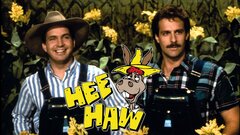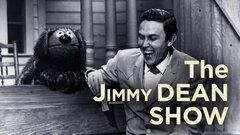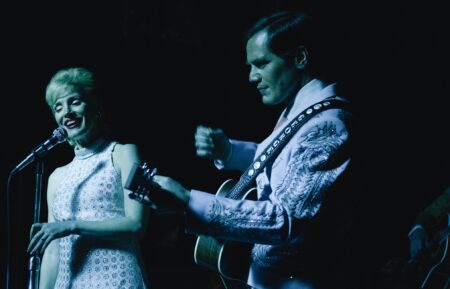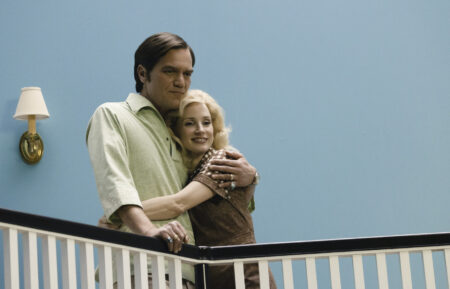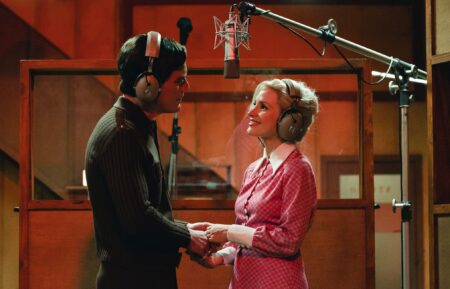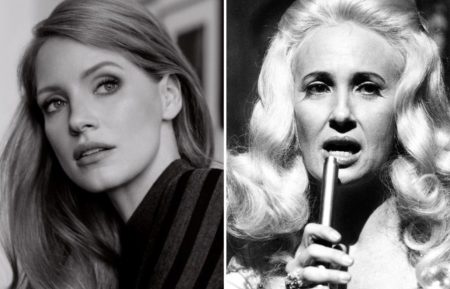Considered by many to be the greatest all-time country singer, George Jones was as famous for his music as his colorful life. Starting out as a rockabilly and honky-tonk singer, his association with producer Pappy Daily led to mainstream country success with hits like 1959's "White Lightning," 1961's "Tender Years" and 1962's "She Thinks I Still Care."
Known fondly as "The Possum" and less so as "No-Show Jones," the hard-living but talented singer met his match in country music legend Tammy Wynette. His tumultuous, brief marriage and longer-lasting professional relationship with Wynette captivated America and was immortalized in a string of 1970s hit duets including "The Ceremony," "We're Gonna Hold On," "(We're Not) The Jet Set" and "Golden Ring" that brought out the best in both of their world-class voices.
After surviving heartbreak, drug and alcohol addiction and a reputation for being an erratic and unstable performer, Jones silenced critics with his Grammy-winning masterpiece, 1981's "He Stopped Loving Her Today," considered by many to be the ultimate country classic. Blessed with a rich, emotion-filled voice and a passion for delivering solid songs, George Jones built an impressive legacy by honoring the roots of true country. His 2013 death was mourned by all country music fans.
Born Sept. 12, 1931 in Saratoga, TX, George Glenn Jones was given a guitar as a child and was soon singing for tips on the streets of nearby Beaumont. Always fascinated by music and drawn to imitate his classic country icons Lefty Frizzell, Roy Acuff and Hank Williams, Jones lived at a fast pace, marrying twice, serving in the U.S. Marines, and cutting his musical teeth on the Texas honky-tonk circuit, all by the age of 24.
Discovered by producer Pappy Daily, Jones signed a record deal in 1953, and the producer would prove to be a highly influential and formative figure in the singer's career. Although Jones's debut single, 1954's "No Money in This Deal" left no impression on the charts, Jones shed the weight of his prior impressions. Discovering his own unique voice during a series of recording sessions for Starday Records, Jones recorded his first hit, 1955's "Why Baby Why," which went Top Five.
As he continued to mature as a singer, eventually reaching his signature steeped-in-emotion style, Jones earned induction into the Grand Ole Opry. He hit No. 1 for the first time with 1959's "White Lightning" and never looked back, notching an incredible series of career-making chart-toppers that included the 1961 ballad "Tender Years" and 1962's "She Thinks I Still Care."
Given the nickname "The Possum" for his distinctive features and mischievous, wily nature, Jones quickly became the top male country singer in the business. He began to duet with Melba Montgomery, and their bluegrass-flecked hits like 1963's "We Must Have Been Out of Our Minds" helped burnish Jones' reputation as a true country singer just as pop began to influence the genre. On his own, he launched the oft-covered hit "The Race is On" in 1964, and entered a period of unprecedented productivity, recording almost 300 songs in five years, including classics like "Love Bug," "Walk Through This World With Me" and "A Good Year for the Roses."
Not every cut could be top-tier, however, and by oversaturating the marketplace with his albums and singles, Jones' handlers sent his career off the rails. The singer proved only too happy to help, however, and his legendary alcoholism and wild behavior spiraled out of control. Although some of his run-ins with the law and misbehavior later became the stuff of legend, including him driving a riding lawnmower to a bar when his wife hid the car keys, Jones revealed an appetite for self-destruction and a subsequent carelessness with his relationships and career.
After his wife filed for divorce in 1968, Jones moved to Nashville and crossed paths with his female country music equivalent, Tammy Wynette. The talented twosome quickly fell in love and was married on Feb. 16, 1969. When producer Daily and the label thwarted Jones' stated desire to record with Wynette, long-simmering tensions erupted, resulting in Jones breaking free in 1971. Because he had to sign away the rights to his previous recordings, the label continued to release material after the split.
Signed to his wife's label, Epic, Jones recorded a series of duets with Wynette that sent both of their careers into the stratosphere. As popular and acclaimed as they were on their own, together they were even more beloved - achieving dual chart smashes and sold-out concerts. With his success smoothing some of his rougher honky-tonk edges, Jones was able to apply his impressive voice to ballads, wowing critics with this new artistic dimension to his already famed singing ability.
His first solo single on Epic, 1972's "We Can Make It," went to No. 2, and that same year he hit it big with Wynette on "The Ceremony" and "Loving You Could Never Be Better." Fans and critics devoured each duet as well as their inherent drama, and the more tempestuous the couple's real-life relationship became, the more invested in their music listeners were. Although the strong-willed Wynette was dedicated to making the marriage work, Jones and his addictions and demons proved his own worst enemy, and his drug and alcohol abuse eventually became too much for Wynette, who filed for divorce in 1973, claiming physical abuse.
The synergy of the spectacle of two real-life lovers making passionate music about their ups and downs only helped both Wynette and Jones earn the esteem of fans. When the two reconciled, their 1974 duet "We're Gonna Hold On" soared to No 1. Delighting with joint appearances on shows like "Hee Haw" (CBS, 1969-1971; syndicated, 1972-1992) and with songs like 1974's "(We're Not) The Jet Set," their combined charisma immortalized them among the all-time great couples.
Although he had been steadily collecting hits on his own, Jones soon hit the top spot twice in a row with solo singles that cast doubt on the couple's happiness: "The Grand Tour" and "The Door." As fans breathlessly kept tabs on the two, Jones and Wynette divorced for good. Although he scored two Wynette-inspired Top Ten hits, 1975's "These Days (I Barely Get By)" and 1976's "Her Name Is," Jones began another professional and personal descent. Jones and Wynette continued to tour and record together, proving their artistic magic was more potent than ever when tinged with real-life heartbreak; they scored two No. 1 singles in 1976, the hauntingly stark "Golden Ring" and "Near You."
On his own, Jones came frighteningly close to dying, pushing himself into drug and booze-soaked misbehavior that shocked conservative fans and critics alike. Vanishing for days, the singer ended up missing so many concerts that he earned another sobriquet, "No-Show Jones." He revisited his rockabilly roots, and collaborations with Johnny Paycheck and James Taylor inspired an album of duets, 1979's My Very Special Guests. The impact of the project was dulled, however, by Jones' unprofessional behavior during the recording. Addicted to alcohol as well as cocaine, Jones's situation grew so dire that he entered rehab but left after a month.
Somehow he was able to pull things together, and his 1980 duet with Wynette "Two Story House" went Top Ten. Building on his momentum, Jones took the dramatic ballad "He Stopped Loving Her Today" to the top of the charts on his own. The subject matter made it impossible to avoid reading his life story into the already powerful lyrics, and it was considered by many to be one of the greatest country songs ever recorded. It won virtually every award possible, including a Grammy and the Country Music Association Single of the Year.
With his career amazingly resuscitated, Jones released his biggest album, 1980's I Am What I Am, which spawned a slew of Top Ten singles. Fittingly, he also returned to the top of the charts guesting on Barbara Mandrell's signature song, "(I Was Country) When Country Wasn't Cool." The dark lining to all this success, tragically, was Jones's continued addictions, and he was arrested after a televised police chase of him driving drunk through Nashville.
His subsequent marriage to his fourth wife and manager helped him finally kick the habits, and he continued to notch moderately successful songs, including his final solo Top Ten, 1988's "One Woman Man." Recognized as an elder statesman of the genre but unable to obtain the radio play, promotion and sales younger stars monopolized, Jones was inducted into the Country Music Hall of Fame and settled into his lighter workload. He earned a Top Ten hit dueting with Randy Travis on 1990's "A Few Ole Country Boys," recorded a new album of duets with Wynette with 1995's One, and published his autobiography, I Lived to Tell it All in 1996.
Two years later, the same year Tammy Wynette died, Jones miraculously survived a horrific car accident, but found himself back in rehab after it was revealed that he had been drinking and driving.
Given a new record deal to record traditional country music, Jones continued to release acclaimed but low-selling sets, including 1999's Cold Hard Truth, for which he made headlines. Invited to perform an abridged version of lead single "Choices" at the CMA Awards, Jones refused to comply and did not attend. In tribute to Jones' legendary status, Alan Jackson played part of the song in protest during his own performance.
Jones also earned a U.S. National Medal of Arts in 2002 and released the albums Hits I Missed And One I Didn't in 2005 and Burning Your Playhouse Down in 2008. That same year, he was named a Kennedy Center honoree. George Jones died in Nashville of natural causes on April 26, 2013. at the age of 81.
By Jonathan Riggs

















